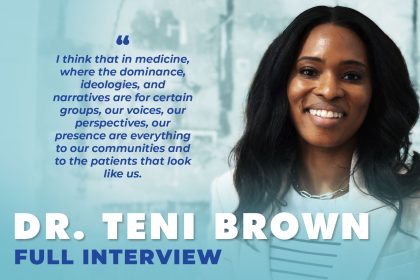Recent research from Dr. Sam Lim, Chief of Rheumatology at Grady Health System, illuminates the profound connection between systemic lupus erythematosus and social determinants of health within Black communities. The findings reveal critical insights into healthcare accessibility and treatment outcomes, particularly highlighting the disproportionate impact on Black women who face multiple systemic barriers to effective care.
Revealing statistics paint concerning picture
The research identifies three primary challenges affecting lupus patients:
- Financial strain emerges as the most prevalent issue, affecting 72% of patients who struggle with medical expenses and basic necessities. This encompasses difficulties with prescription costs, medical appointment fees, and essential healthcare services.
- Food insecurity impacts 51% of patients, limiting their access to proper nutrition necessary for managing their condition effectively. This includes both the quantity and quality of food available to patients managing this complex autoimmune condition.
- Housing instability affects 35% of patients, creating additional stress that can exacerbate lupus symptoms. This encompasses challenges with maintaining stable housing, utilities, and safe living conditions conducive to health management.
Defining social determinants in healthcare
Social determinants of health encompass the environmental and social conditions shaping individual health outcomes. These factors extend beyond medical care to include education access, income levels, housing stability, and experiences with discrimination, particularly affecting Black communities where systemic inequities persist. Understanding these determinants becomes crucial in developing effective treatment strategies and support systems.
Impact on treatment outcomes
The study demonstrates how adverse social conditions directly influence lupus management and progression. Poverty, inadequate housing, and limited access to nutritious food significantly affect treatment adherence and disease severity. These challenges often lead to increased complications and poorer health outcomes. The research specifically indicates that patients facing multiple social barriers experience more frequent disease flares and slower recovery times.
Building trust through cultural competency
Healthcare providers must acknowledge historical healthcare inequities while developing culturally competent approaches to care. The research shows that 91% of patients feel comfortable discussing social challenges when providers create supportive, nonjudgmental environments. This high level of comfort indicates the potential for meaningful intervention when proper communication channels are established.
Creating accessible healthcare solutions
Medical institutions have begun implementing various initiatives to address these challenges:
- Mobile health clinics bring care directly to underserved communities, reducing transportation barriers and improving access to regular medical attention.
- Expanded telehealth services reduce transportation barriers while providing flexible appointment options that accommodate diverse work schedules and family responsibilities.
- Financial assistance programs help manage treatment costs, including medication expenses, appointment fees, and associated healthcare services.
- Cultural competency training improves provider-patient relationships by enhancing understanding of cultural nuances and community-specific needs.
Institutional responsibility and reform
Healthcare organizations must take leading roles in addressing structural barriers to care. This includes implementing comprehensive screening programs, providing staff training on cultural competency, and developing sustainable support systems for vulnerable patients. Organizations must also work to diversify their workforce and leadership to better reflect and understand the communities they serve.
Effective screening for social determinants requires seamless integration into existing healthcare systems. Electronic health records must incorporate these assessments while maintaining efficiency in clinical workflows and ensuring patient privacy. Regular assessment of screening effectiveness and outcomes helps refine these protocols over time.
Community engagement and support
Healthcare institutions must develop strong partnerships with community organizations to create comprehensive support networks. These collaborations can provide:
- Resources for food assistance and nutrition education programs
- Housing support services and emergency shelter access
- Transportation assistance to medical appointments
- Financial counseling and assistance programs
- Mental health support services
Patient engagement strategies
Healthcare providers should employ specific approaches to foster open communication:
- Using inclusive language that respects cultural differences and acknowledges diverse experiences
- Implementing open-ended questions to encourage dialogue about social challenges
- Creating welcoming environments for discussing sensitive topics related to social determinants
- Providing resources and support for identified challenges
- Maintaining consistent follow-up to monitor progress and adjust interventions
Educational initiatives and awareness
Developing comprehensive educational programs helps both healthcare providers and patients understand the impact of social determinants:
- Provider training on recognizing and addressing social barriers
- Patient education about available resources and support services
- Community outreach programs to raise awareness about lupus management
- Family education to build support networks for patients
Research and data collection
Continuous research efforts are essential for understanding and addressing social determinants:
- Regular assessment of intervention effectiveness
- Collection of patient feedback and experiences
- Analysis of outcomes data to refine approaches
- Documentation of successful strategies and areas for improvement
Long-term benefits of comprehensive care
Addressing social determinants in lupus care produces lasting positive outcomes:
- Reduced frequency of disease flares through better disease management
- Decreased hospitalization rates due to improved preventive care
- Improved medication adherence through better access and support
- Better overall quality of life for patients and their families
- Stronger patient-provider relationships leading to more effective care
Future directions and recommendations
The research points to several key areas for future development:
- Expanded screening programs to identify social barriers early
- Enhanced integration of social services with medical care
- Increased funding for support programs and research
- Development of standardized protocols for addressing social determinants
- Improved policy advocacy for healthcare equity
The research underscores the critical need for healthcare systems to address social determinants when treating lupus in Black communities. This comprehensive approach not only improves individual patient outcomes but also contributes to broader healthcare equity and social justice.
As medical institutions continue implementing these findings, the focus must remain on creating sustainable, patient-centered solutions that acknowledge and address the complex social factors affecting health outcomes in Black communities. The success of these initiatives depends on continued commitment from healthcare providers, institutions, and policymakers to prioritize equity in healthcare delivery.












